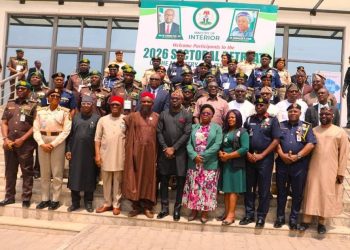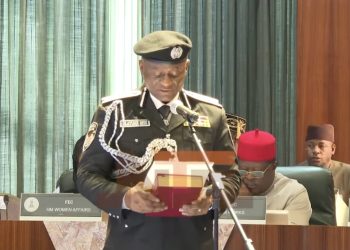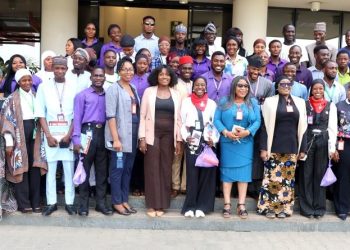By Nkechi Eze
The Executive Chairman of the Fiscal Responsibility Commission (FRC), Victor Muruako, has called for strict compliance with the Fiscal Responsibility Act 2007 across all levels of government as a crucial step toward strengthening transparency, accountability, and effective public financial management in Nigeria.
According to an official signed statement by Bede Ogueri Anyanwu, spokesperson for the Commission, Muruako made this charge during the public unveiling of the 2025 Transparency and Integrity Index Methodology. The event, which took place at the Federal Ministry of Finance in Abuja, was organized by the Bureau of Public Service Reforms (BPSR) in partnership with the Centre for Fiscal Transparency and Public Integrity (CEFTPI).
Speaking to representatives of public institutions and state governments, Muruako urged Ministries, Departments, and Agencies (MDAs), as well as sub-national governments, to adopt the Index as a strategic instrument for institutional growth rather than merely a procedural exercise.
“This event marks a crucial step in our collective journey toward deepening accountability, transparency, and ethical governance across Nigeria’s public institutions,” Muruako said. “Transparency is not an abstract ideal, it is a practical necessity and the foundation upon which sound public finance management is built.”
He commended the 2025 methodology for placing emphasis on core governance pillars and aligning with critical legislative frameworks such as the Fiscal Responsibility Act, Freedom of Information Act, and Public Procurement Act. According to him, this alignment enhances cooperation among regulatory bodies, MDAs, and other stakeholders in the accountability ecosystem.
“We encourage all MDAs and sub-national entities to embrace this initiative as an opportunity for institutional reform. By actively engaging with the Index, we move closer to a governance culture that prioritizes transparency, performance, and citizen-focused service delivery,” Muruako added.
He further reiterated the Commission’s support for President Bola Ahmed Tinubu’s economic reform agenda, particularly efforts aimed at revitalizing local government structures and institutionalizing fiscal discipline nationwide.
Director-General of the Bureau of Public Service Reforms, Dr. Dasuki Arabi, echoed similar sentiments during his remarks, describing the Index as a tool for identifying high-performing institutions and promoting openness in government operations. “The methodology supports freedom of information, enhances service delivery, and promotes the ease of doing business,” he said.
Representing the Secretary to the Government of the Federation, Senator George Akume, was Dr. Moris Mbaeri, who emphasized the need for stronger financial systems and accountability mechanisms across all levels of governance.
Delivering the keynote presentation, Dr. Umar Yakubu, Executive Director of CEFTPI, outlined the five core components used to assess public institutions: financial disclosures, procurement transparency, human resources management, anti-corruption measures, and citizen engagement.
The event brought together key stakeholders, including representatives from the Economic and Financial Crimes Commission (EFCC), Nigeria Customs Service, and several MDAs. Muruako also commended the BPSR for organizing a capacity-building session for officials of the Gambian Ministry of Public Service, facilitated by the FRC.
The gathering reaffirmed a shared commitment to advancing good governance, institutional transparency, and fiscal responsibility throughout Nigeria’s public sector.















